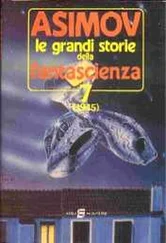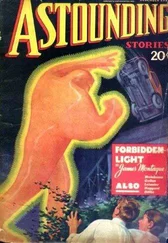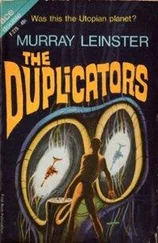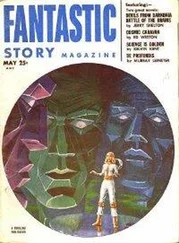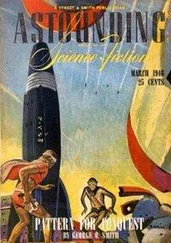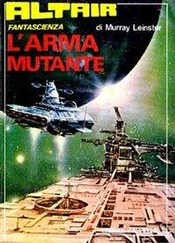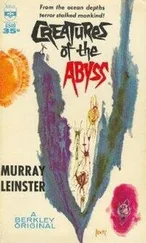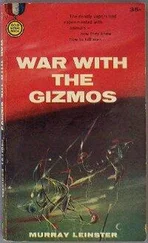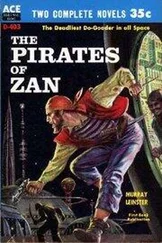Murray Leinster - The Aliens
Здесь есть возможность читать онлайн «Murray Leinster - The Aliens» весь текст электронной книги совершенно бесплатно (целиком полную версию без сокращений). В некоторых случаях можно слушать аудио, скачать через торрент в формате fb2 и присутствует краткое содержание. Год выпуска: 2007, Жанр: Космическая фантастика, на английском языке. Описание произведения, (предисловие) а так же отзывы посетителей доступны на портале библиотеки ЛибКат.
- Название:The Aliens
- Автор:
- Жанр:
- Год:2007
- ISBN:нет данных
- Рейтинг книги:3 / 5. Голосов: 1
-
Избранное:Добавить в избранное
- Отзывы:
-
Ваша оценка:
- 60
- 1
- 2
- 3
- 4
- 5
The Aliens: краткое содержание, описание и аннотация
Предлагаем к чтению аннотацию, описание, краткое содержание или предисловие (зависит от того, что написал сам автор книги «The Aliens»). Если вы не нашли необходимую информацию о книге — напишите в комментариях, мы постараемся отыскать её.
The Aliens — читать онлайн бесплатно полную книгу (весь текст) целиком
Ниже представлен текст книги, разбитый по страницам. Система сохранения места последней прочитанной страницы, позволяет с удобством читать онлайн бесплатно книгу «The Aliens», без необходимости каждый раз заново искать на чём Вы остановились. Поставьте закладку, и сможете в любой момент перейти на страницу, на которой закончили чтение.
Интервал:
Закладка:
This was at 07 hours 40 minutes ship time. Outside the sedately rotating metal hulls—the one a polished blue-silver and the other a glittering golden bronze—the cosmos continued to be as always. The haze from explosive fumes and rocket-fuel was, perhaps, a little thinner. The brighter stars shone through it. The gas-giant planet outward from the sun was a perceptible disk instead of a diffuse glow. The oxygen-planet to sunward showed again as a lighted crescent.
Presently Baird, in a human spacesuit, accompanied the Plumie into the Niccola’s air lock and out to emptiness. His magnetic-soled shoes clung to the Niccola’s cobalt-steel skin. Fastened to his shoulder there was a tiny scanner and microphone, which would relay everything he saw and heard back to the radar room and to Diane.
She watched tensely as he went inside the Plumie ship. Other screens relayed the image and his voice to other places on the Niccola .
He was gone a long time. From the beginning, of course, there were surprises. When the Plumie escort removed his helmet, on his own ship, the reason for the helmet’s high crest was apparent. He had a high crest of what looked remarkably like feathers—and it was not artificial. It grew there. The reason for conventionalized plumes on bronze survey plates was clear. It was exactly like the reason for human features or figures as decorative additions to the inscriptions on Space Survey marker plates. Even the Plumie’s hands had odd crestlets which stood out when he bent his fingers. The other Plumies were no less graceful and no less colorful. They had equally clear soprano voices. They were equally miniature and so devoid of apparent menace.
But there were also technical surprises. Baird was taken immediately to the Plumie ship’s engine room, and Diane heard the sharp intake of breath with which he appeared to recognize its working principle. There were Plumie engineers working feverishly at it, attempting to discover something to repair. But they found nothing. The Plumie drive simply would not work.
They took Baird through the ship’s entire fabric. And their purpose, when it became clear, was startling. The Plumie ship had no rocket tubes. It had no beam-projectors except small-sized objects which were—which must be—their projectors of tractor and pressor beams. They were elaborately grounded to the ship’s substance. But they were not originally designed for ultra-heavy service. They hadn’t and couldn’t have the enormous capacity Baird had expected. He was astounded.
When he returned to the Niccola , he went instantly to the radar room to make sure that pictures taken through his scanner had turned out well. And there was Diane.
But the skipper’s voice boomed at him from the wall.
“ Mr. Baird! What have you to add to the information you sent back? ”
“Three items, sir,” said Baird. He drew a deep breath. “For the first, sir, the Plumie ship is unarmed. They’ve tractor and pressor beams for handling material. They probably use them to build their cairns. But they weren’t meant for weapons. The Plumies, sir, hadn’t a thing to fight with when they drove for us after we detected them.”
The skipper blinked hard.
“ Are you sure of that, Mr. Baird? ”
“Yes, sir,” said Baird uncomfortably. “The Plumie ship is an exploring ship—a survey ship, sir. You saw their mapping equipment. But when they spotted us, and we spotted them—they bluffed! When we fired rockets at them, they turned them back with tractor and pressor beams. They drove for us, sir, to try to destroy us with our own bombs, because they didn’t have any of their own.”
The skipper’s mouth opened and closed.
“Another item, sir,” said Baird more uncomfortably still. “They don’t use iron or steel. Every metal object I saw was either a bronze or a light metal. I suspect some of their equipment’s made of potassium, and I’m fairly sure they use sodium in the place of aluminum. Their atmosphere’s quite different from ours—obviously! They’d use bronze for their ship’s hull because they can venture into an oxygen atmosphere in a bronze ship. A sodium-hulled ship would be lighter, but it would burn in oxygen. Where there was moisture—”
The skipper blinked.
“ But they couldn’t drive in a non-magnetic hull! ” he protested. “ A ship has to be magnetic to drive! ”
“Sir,” said Baird, his voice still shaken, “they don’t use a magnetronic drive. I once saw a picture of the drive they use, in a stereo on the history of space travel. The principle’s very old. We’ve practically forgotten it. It’s a Dirac pusher-drive, sir. Among us humans, it came right after rockets. The planets of Sol were first reached by ships using Dirac pushers. But—” He paused. “They won’t operate in a magnetic field above seventy Gauss, sir. It’s a static-charge reaction, sir, and in a magnetic field it simply stops working.”
The skipper regarded Baird unwinkingly for a long time.
“ I think you are telling me ,” he said at long last, “ that the Plumies’ drive would work if they were cut free of the Niccola. ”
“Yes, sir,” said Baird. “Their engineers were opening up the drive-elements and checking them, and then closing them up again. They couldn’t seem to find anything wrong. I don’t think they know what the trouble is. It’s the Niccola’s magnetic field. I think it was our field that caused the collision by stopping their drive and killing all their controls when they came close enough.”
“ Did you tell them? ” demanded the skipper.
“There was no easy way to tell them by diagrams, sir.”
Taine’s voice cut in. It was feverish. It was strident. It was triumphant.
“ Sir! The Niccola is effectively a wreck and unrepairable. But the Plumie ship is operable if cut loose. As weapons officer, I intend to take the Plumie ship, let out its air, fill its tanks with our air, start up its drive, and turn it over to you for navigation back to base! ”

Baird raged. But he said coldly:
“We’re a long way from home, Mr. Taine, and the Dirac pusher drive is slow. If we headed back to base in the Plumie ship with its Dirac pusher, we’d all be dead of old age before we’d gone halfway.”
“ But unless we take it ,” raged Taine, “ we hit this sun in fourteen days! We don’t have to die now! We can land on the oxygen planet up ahead! We’ve only to kill these vermin and take their ship, and we’ll live! ”
Diane’s voice said dispassionately:
“Report. A Plumie in a pressure suit just came out of their air lock. It’s carrying a parcel toward our air lock.”
Taine snarled instantly:
“ They’ll sneak something in the Niccola to blast it, and then cut free and go away! ”
The skipper said very grimly:
“ Mr. Taine, credit me with minimum brains! There is no way the Plumies can take this ship without an atomic bomb exploding to destroy both ships. You should know it! ” Then he snapped: “ Air lock area, listen for a knock, and let in the Plumie or the parcel he leaves. ”
There was silence. Baird said very quietly:
“I doubt they think it possible to cut the ships apart. A torch is no good on thick silicon bronze. It conducts heat too well! And they don’t use steel. They probably haven’t a cutting-torch at all.”
From the radar room he watched the Plumie place an object in the air lock and withdraw. He watched from a scanner inside the ship as someone brought in what the Plumie had left. An electronics man bustled forward. He looked it over quickly. It was complex, but his examination suddenly seemed satisfying to him. But a grayish vapor developed and he sniffed and wrinkled his nose. He picked up a communicator.
Читать дальшеИнтервал:
Закладка:
Похожие книги на «The Aliens»
Представляем Вашему вниманию похожие книги на «The Aliens» списком для выбора. Мы отобрали схожую по названию и смыслу литературу в надежде предоставить читателям больше вариантов отыскать новые, интересные, ещё непрочитанные произведения.
Обсуждение, отзывы о книге «The Aliens» и просто собственные мнения читателей. Оставьте ваши комментарии, напишите, что Вы думаете о произведении, его смысле или главных героях. Укажите что конкретно понравилось, а что нет, и почему Вы так считаете.

